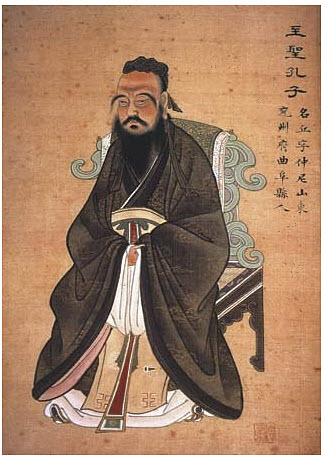This article is about the Teachings of Confucius
|
What are the main teachings of Confucius?
Confucius expounded a system of social and political philosophy which
he conveyed to a group of disciples. His teachings and sayings were
later collected by the disciples of Confucius in a book known in the
West as the Analects.
Confucius was also traditionally believed to have been the author or at
least the editor of the classic Confucian texts called the Five Classics.
 The Teachings of Confucius
The Teachings of Confucius
Confucius said
that he was not an innovator and that all of his teachings were merely
rediscoveries of what had been true in the past. Society was said to
have deviated from an earlier Golden Age, and it was his task to guide
it back to its proper condition. Appeals to ancient authority were
probably customary at the time, and it is not true that Confucius was
merely relating ideas which had existed before. In fact, there is reason
to believe that much of what Confucius taught
was revolutionary at the time, as witnessed by the fact that after his
death Chinese emperors attempted to suppress the spread of Confucianism
by burning his books and executing Confucian scholars. However
Confucianism and the teachings of Confucius eventually prevailed, and
Confucianism eventually received Imperial sanction and came to be
adopted as the state "religion" (the word religion is in quotes because
there is debate whether Confucianism is actually a religion or is simply
a system of philosophy.) The privileged position of Confucianism within
Chinese society lasted for many centuries, until the Communist
takeover, and had a profound influence on the development of China.
The teachings of Confucius are focused on two interrelated areas:
Social Teachings, which deal with the proper behaviour of the individual
in society and to his fellow men, and Political Teachings, which deal
with the art of governance and the proper relationship of the Ruler to
the ruled. He viewed education as central to achieving proper conduct
both within Society and in Government.
|


No comments:
Post a Comment